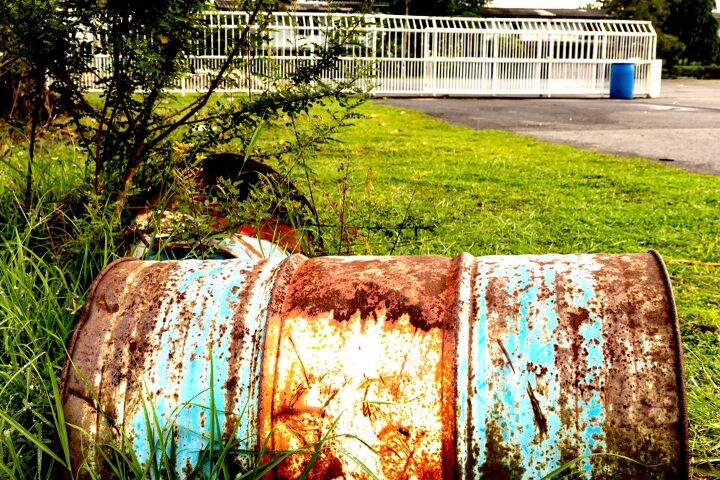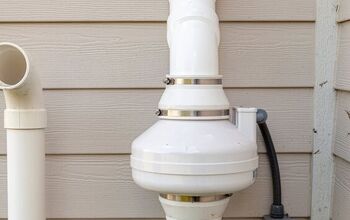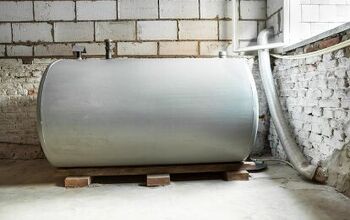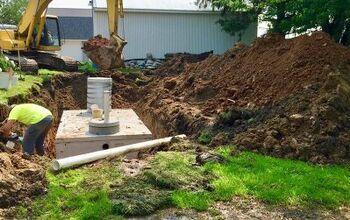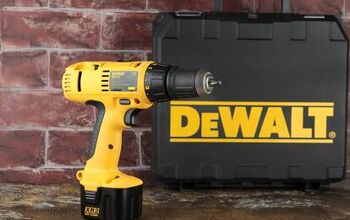Should I Buy a House With a Decommissioned Oil Tank?

There is no law against buying or selling a home with an underground oil tank. But purchasing a home with a decommissioned oil tank could add excessive costs and cause health problems, so home buyers should consider this decision critically.
You should not buy a home with a decommissioned oil tank. But, if you are willing to consider purchasing a home with a decommissioned oil tank, you should request a soil test and ask the seller to cover all costs associated with the removal of the tank.
Risks of Buying a Home with a Decommissioned Oil Tank
If you end up wanting to buy a home with a decommissioned oil tank, it is important to know that there are several risks to the well-being of the people who will live in the home you purchase. Some of these risks include leakage, fumes, and contaminated ground water.
Leakage
Over time, properly decommissioned tanks can leak. If this occurs, the homeowner is personally responsible for the cleanup. This can be very expensive and must be resolved properly with the help of professionals.
Fumes
There can be fumes and other issues in your basement or first floor. Fumes can be dangerous to the health of everyone who lives in the home. Fumes can also cause a fire risk. If there are fumes, most commonly, homeowners’ insurance does not cover these costs.
Ground Water
The water can become contaminated if the tank leaks into the soil. This would be a hazard for everyone who lives in the home. This can also be a hazard for the local wildlife. If the water is contaminated, the costs to clean up the contamination could be quite high as this issue is far-reaching and difficult to resolve.
Improperly Decommissioned Oil Tanks
There are many ways an oil tank could be decommissioned improperly. Some of these ways include if the oil tank is filled with sand, stone, foam, or concrete. In fact, decommissioned tanks with sand leak 85% of the time due to holes. They were most likely filled with sand in the ’90s or before.
The tanks were commonly decommissioned without a permit or permission and therefore might not be a clean closure. Tanks filled with sand, stone, foam, or concrete are not in proper compliance and could cause problems in the future if you own the home.
Buying a Home in “Sold As Is with a Decommissioned Oil Tank”
If you are buying a home in “sold as is with a decommissioned oil tank,” this could cause problems in the future. What that means is you, as the buyer, will be responsible for any problems with the property, including the decommissioned oil tank.
Determining the issues with the oil tank can be quite costly, and many sellers may not want to take this on. However, as the buyer, it is important to know what you are getting into before you accept a “sold as is” property.
If an Addition was Built Over the Decommissioned Oil Tank
If an addition was built over the decommissioned oil tank, it may be impossible to remove it. However, as the owner of the home, you would still be responsible for the liability of the oil tank. As the homeowner, you would need to show that the tank did not leak in the past and will not leak in the future.
At some point, the tank would need to be dug up, opened, cleaned, and had the soil tested for leakage. If you are potentially buying a home with a decommissioned oil tank under an addition, this could cause problems or hardships in the long run.
Proper Removal and Proof
If the seller provides a proven state assessment that states that the decommissioned tank has been properly removed, this home could be worth considering for purchase. If the sellers do not provide you with this document, the buyer could be held liable for the expenses occulted for removing an improperly decommissioned tank.
Will Insurance Cover a Decommissioned Oil Tank?
Most commonly, new policies for new homeowners will not cover anything related to the decommissioned oil tank. Insurance companies are generally not willing to cover this cost.
Before making any decisions, contact your insurance company to find out of an oil tank in a new home will be purchased. This can help you to make the most informed decision about the purchase of the home.
What To Do If You Still Want to Buy the House
If you love a particular house and want to consider purchasing it, despite the fact that it has a decommissioned oil tank, you can test the soil and ask the sellers to cover the costs of removal. Do not be tempted by a seller credit.
Test the Soil
The only way to know what type of damage has been done by the decommissioned oil tank is to test the soil. As a homebuyer, you should ask the seller to cover this cost and facilitate this process.
Do not move forward with the purchase of the home until the results of the soil test come back. Once they come back, you can have a better understanding of what it will take to have the decommissioned oil tank removed and cleaned up. Be patient in waiting for the results.
Ask Seller to Cover Costs
If the soil samples reveal that the tank is leaking, the removal and clean-up can be very costly. The seller should cover these costs or the buyer should reconsider the purchase of the home.
If the seller agrees to this, it is important to add a clause in your contract that explicitly states that the seller will be responsible for removing the tank. This makes it legally binding and puts the responsibility on them.
If the seller is unwilling to cover the costs, the buyer should consider walking away from the purchase of the home.
Decline a Seller Credit
The seller may offer the buyer a credit of a few thousand dollars and ask the buyer to remove the decommissioned oil tank. However, this is not a wise decision because the costs, time, and effort could far exceed the credit that is offered.
Do not be tempted by seller credit because it might seem like a good idea at the moment. Realize the bigger picture – purchasing a home with a decommissioned oil tank is full of unexpected costs and carries many potential health risks.
Decommissioned Tank Removal Removal Cost
Removing a decommissioned tank from the ground generally costs $1,600, with soil testing costing around $600. This does not include dealing with oil leaks, which can cost an additional $7,000 to $15,000 or more. If you decide to purchase a home with an oil tank, the cost for removal will depend on the size of the tank and if the tank is above or below the ground. There are many other factors, such as transportation costs, permits, liquid disposal, laboratory testing, and repairing damage caused by the tank that impacts the total cost.
Considerations as a Seller
If you are selling a home that has a decommissioned oil tank, it would benefit you to remove the tank before listing your home for sale. If you leave the tank on the property, this could cause issues with the sale of the home. This could end up costing you money and time, and you could end up losing offers on the house if this issue is not properly resolved.
Contact your state to learn more about the removal process and learn how much it will cost. Once it is complete, get an official report of the removal to show the buyers as they may have concerns about the decommissioned oil tank.
State Removal of Decommissioned Oil Tanks
You will need to work with the state or a licensed professional to have the oil tank removed properly. If you live in a state where there are many older homes, there is a higher chance of encountering a decommissioned oil tank in your home buying experience.
Related Questions
Will my home insurance cover an issue with a decommissioned oil tank?
It depends on your policy. If you are a current homeowner with a decommissioned tank, there is a chance you are grandfathered in. But most likely, insurance companies do not include decommissioned oil tanks in their policies.
How much does it cost to remove the oil tank?
The price for removal on many factors but ranges from $1,000 – $3,000 or more. There may be additional costs based on the amount of damage. If you buy a home with an oil tank, you should consider this cost in your budget when purchasing the home.
How many residential oil tank removals take place each year?
In New Jersey alone, the Department of Environmental Protection oversees 1,800 residential oil tank clean-ups on an annual basis. This is because there are many older homes in the state.
In Summary
There are a lot of factors to consider before deciding if you want to purchase a home with a decommissioned oil tank.
If you are considering moving forward with a home that has a decommissioned oil tank, ask the seller to cover the costs of removal and be sure to get the agreement as a part of your contract. Additionally, request a soil test so you can make the most informed decision.

We are a team of passionate homeowners, home improvement pros, and DIY enthusiasts who enjoy sharing home improvement, housekeeping, decorating, and more with other homeowners! Whether you're looking for a step-by-step guide on fixing an appliance or the cost of installing a fence, we've here to help.
More by Upgraded Home Team



